In today’s rapidly evolving automotive market, new energy vehicles have emerged as a prominent and highly sought-after choice. Their growing popularity can be attributed to a combination of factors that address various concerns and desires of modern consumers. Let’s explore in detail why new energy vehicles have captured the attention and affection of so many.

Low cost of use
Nowadays, many people express a common sentiment that while they may be able to afford to purchase a car, the cost of driving and maintaining it can be a significant burden. One of the primary reasons for this concern is the steadily rising oil prices. Fuel consumption becomes a major expense that cannot be overlooked, and for many, it has reached an almost unbearable level.
In contrast, new energy vehicles offer a distinct advantage in terms of cost. When comparing the electricity consumption per 100 kilometers of new energy vehicles to the fuel consumption per 100 kilometers of ordinary cars, the price difference is truly remarkable. The cost of electricity is generally much lower than that of gasoline or diesel, resulting in significant savings for the vehicle owner.
Bygelyks bygelyks, consider a person who commutes a certain distance to work every day. With a traditional fuel-powered car, the cost of fuel can add up quickly over time. However, if they were to use a new energy vehicle, the electricity cost for the same distance would be a fraction of what they would spend on fuel. This not only reduces the monthly transportation expenses but also provides a more predictable and stable cost structure.

Moreover, as technology continues to advance, the infrastructure for electric vehicle charging is also expanding. This means that there are more options for charging, including at home, at work, and in public charging stations. Some employers even offer free or discounted charging for their employees, further reducing the cost of ownership.
In addition to the direct savings on fuel costs, new energy vehicles may also qualify for various government incentives and subsidies. These can include tax credits, rebates, and grants, which can significantly lower the initial purchase price of the vehicle. This financial support makes new energy vehicles an even more attractive option for budget-conscious consumers.
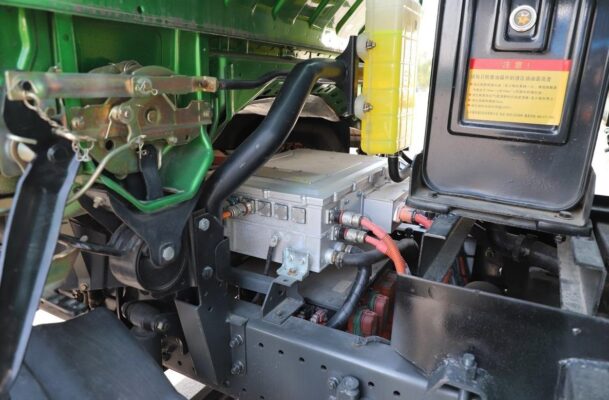
Stable driving without shifting shock
Compared to traditional cars that require shifting gears, new energy vehicles equipped with single-speed transmissions offer a unique driving experience. The absence of gears means there is no need for the driver to constantly shift gears, resulting in a smoother and more consistent driving experience.
This ease of control is particularly appealing to many drivers, especially those who may be less experienced or who prefer a more relaxed driving style. Without the interruptions and jerks associated with shifting gears, the driving process becomes more seamless and enjoyable.
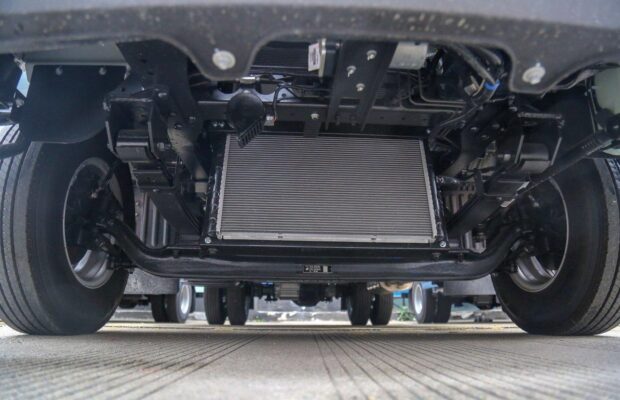
During the entire driving process, drivers can experience a different kind of entertainment. The quiet operation of electric motors, free from the noise and vibration of internal combustion engines, provides a more serene and peaceful driving environment. This can be especially beneficial during long drives or in heavy traffic, where the tranquility can help reduce stress and fatigue.
Bygelyks bygelyks, imagine driving through a busy city center. With a traditional car, the constant shifting and engine noise can be distracting and tiring. However, in a new energy vehicle, the smooth and quiet ride allows the driver to focus more on the road and enjoy the journey. This not only enhances the driving experience but also makes it more pleasant for passengers as well.
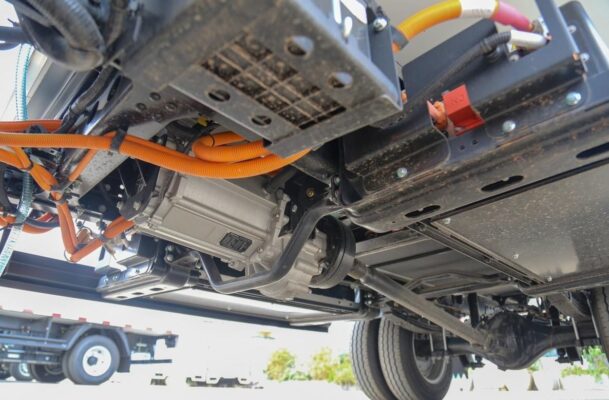
Cool and fashionable appearance
In today’s society, where aesthetics and style play an important role, young people in particular are drawn to things with high appearance value. For tools that accompany them on their daily travels, a beautiful appearance is often considered a basic requirement. New energy vehicles have recognized this trend and have been designed to meet the expectations of young consumers.
These cars often feature sleek and modern designs that stand out on the road. The use of innovative materials and advanced manufacturing techniques gives them a unique and eye-catching look. Whether it’s the streamlined body shape, bold color options, or distinctive lighting designs, new energy vehicles are sure to turn heads.

Bygelyks bygelyks, some new energy models feature futuristic designs with aerodynamic curves and LED lighting accents that give them a high-tech and stylish appearance. Others may have unique interior designs with large touchscreen displays, minimalist dashboards, and comfortable seating arrangements. These features not only enhance the visual appeal of the vehicle but also provide a more enjoyable and comfortable driving experience.
Moreover, new energy vehicles are often associated with innovation and progress. They represent a step forward in automotive technology and are seen as a symbol of environmental consciousness and forward-thinking. This image appeals to young people who are passionate about sustainability and want to make a positive impact on the world.

More environmentally friendly
As society becomes more aware of the importance of environmental protection, the demand for eco-friendly products and solutions has grown significantly. New energy vehicles play a crucial role in addressing this need by offering a more sustainable transportation option.
The traditional internal combustion engine vehicles emit harmful pollutants such as carbon dioxide, nitrogen oxides, and particulate matter, which contribute to air pollution and climate change. In contrast, new energy vehicles, such as electric and hybrid vehicles, produce significantly fewer emissions or even zero emissions in some cases.
By choosing a new energy vehicle, consumers can actively contribute to reducing air pollution and improving the quality of the surrounding environment. This is not only beneficial for personal health but also for the well-being of the entire community.

Bygelyks bygelyks, in urban areas where air pollution is a major concern, the widespread adoption of new energy vehicles can lead to a significant reduction in smog and other pollutants. This can improve visibility, reduce respiratory problems, and create a more pleasant living environment. Oanfoljend, as more people switch to new energy vehicles, the demand for fossil fuels decreases, which can help reduce our dependence on non-renewable resources and mitigate the impacts of climate change.
Moreover, many governments and organizations around the world are promoting the use of new energy vehicles through various initiatives and incentives. This further reinforces the importance of environmental protection and encourages consumers to make the switch to more sustainable transportation options.
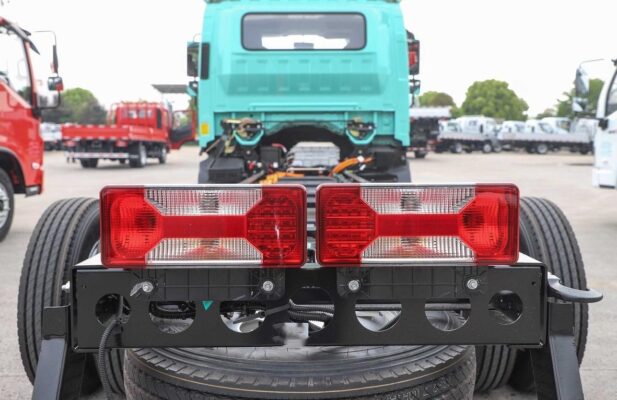
Maintenance
Compared to fuel vehicles, new energy vehicles offer significant advantages in terms of maintenance. At the very least, there is no need to change engine oil and maintain the three filters (air filter, oil filter, and fuel filter) as is required for traditional internal combustion engine vehicles.
For new energy vehicles, the main components that require regular maintenance are the battery pack and electric motor. However, even these components generally require less frequent maintenance than the complex mechanical systems of fuel vehicles.
The battery pack is typically designed to be durable and reliable, and many manufacturers offer warranties and maintenance programs to ensure its long-term performance. Regular inspections may be required to check the battery’s health, charge level, and connections. In some cases, software updates may be available to optimize the battery’s performance and extend its lifespan.

The electric motor is also relatively simple and requires less maintenance than an internal combustion engine. There are no spark plugs, pistons, valves, or other moving parts that are prone to wear and tear. Regular inspections may be needed to ensure proper lubrication and cooling, but overall, the maintenance requirements are much lower.
Bygelyks bygelyks, a person who owns a traditional fuel vehicle may need to take it to the mechanic several times a year for oil changes, filter replacements, and other routine maintenance tasks. These can be time-consuming and expensive. In contrast, a new energy vehicle owner may only need to take their vehicle in for maintenance once or twice a year, saving both time and money.

No license plate restriction by last digit
For many people, travel restrictions based on license plate numbers can be a major inconvenience. In some cities, traditional fuel vehicles are subject to restrictions based on the last digit of their license plates, which can limit their use on certain days or during certain times.
However, new energy vehicles are often exempt from these restrictions. This means that owners of new energy vehicles do not have to worry about being unable to drive their vehicles on specific days due to license plate restrictions.
This advantage makes new energy vehicles a more convenient option for those who need to travel frequently or who rely on their vehicles for daily activities. It provides greater flexibility and freedom of movement, allowing people to go about their daily lives without the hassle of worrying about license plate restrictions.
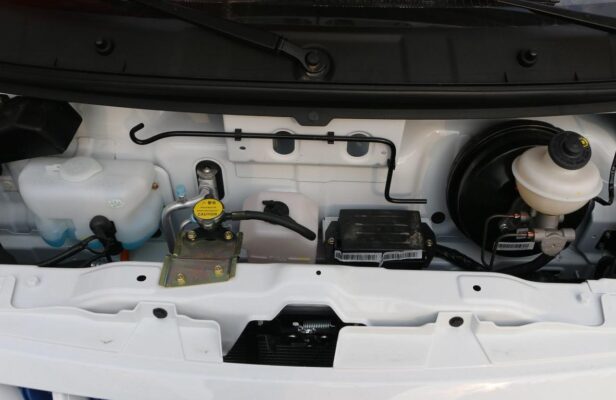
Bygelyks bygelyks, imagine a person who lives in a city with strict license plate restrictions. If they own a traditional fuel vehicle, they may need to plan their trips carefully to avoid days when their vehicle is restricted. This can be inconvenient and may even affect their ability to get to work, run errands, or attend important events. However, if they own a new energy vehicle, they can drive freely without having to worry about these restrictions.
Yn konklúzje, new energy vehicles have become popular for a variety of reasons. Their low cost of use, stable driving experience, cool and fashionable appearance, environmental friendliness, ease of maintenance, and exemption from license plate restrictions make them an attractive option for many consumers. As technology continues to advance and the infrastructure for new energy vehicles continues to expand, it is likely that their popularity will continue to grow in the years to come.